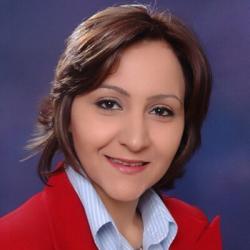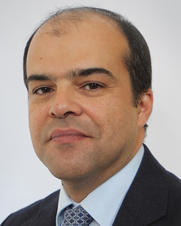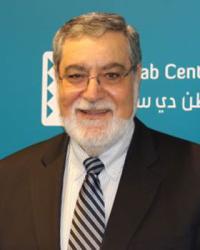

Past Event
Content from the Brookings Doha Center is now archived. In September 2021, after 14 years of impactful partnership, Brookings and the Brookings Doha Center announced that they were ending their affiliation. The Brookings Doha Center is now the Middle East Council on Global Affairs, a separate public policy institution based in Qatar.
The Brookings Doha Center (BDC) hosted a webinar discussion on August 27, 2020 on Palestine and the Arab world, which considered the current state of relations and what it means for the Palestinian liberation movement today and in the future. The panel consisted of a group of distinguished scholars and experts, including: Nour Odeh, political analyst and public diplomacy consultant; Shibley Telhami, nonresident senior fellow in the Project on U.S. Relations with the Islamic World, as well as the Center for Middle East Policy, and the Foreign Policy program at Brookings; Mouin Rabbani, co-editor of Jadaliyya; and Khalil Jahshan, executive director of the Arab Center Washington DC. Omar Rahman, visiting fellow at the BDC, moderated the event.
Shibley Telhami started the discussion by considering the regional shifts and geopolitical realignments that have affected the commitment to the Palestinian cause in the Arab world. He noted that the prominence of the cause strategically emanated from the assumption of its significance to other Arab governments and publics. However, if this assumption had diminished, the importance of Palestine to other nations subsequently declines. In this way, the Arab world has been a cornerstone for the Palestinian cause globally, whereas human rights, international law, and normative reasons have played a smaller role. Hence, the Palestinian leadership needs to acknowledge this influence and be more active in seeking coalitions and alliances within the Arab world. Telhami also argued that the recent relationship developments are not new. The strategic importance of the Palestinian question in the Arab world has been declining since the Camp David Accords. However, over the past few years, the public opinion has also shifted, and the Palestinian question has not been a priority for Arab publics since the Arab Uprisings and the emergence of conflicts in Syria, Yemen, and Libya. Additionally, the deep divisions within Palestine makes it difficult to know how to support it.
Noor Odeh continued the discussion by pointing out that most of the Arab publics are young, disenfranchised, and do not believe in establishments, making them inaccessible through traditional public opinion polling. This dimension has not been considered enough in traditional political analysis, which raises the question whether the conventional polling tools are valid. On a parallel track, in most of the Arab countries, civil societies and political parties and actors are symbolic and do not exercise a large influence on leaders’ decision making. Hence, capturing the real public opinion and its effects is difficult and complex, but remains important and decisive when going beyond the traditional political assessment. Odeh added that younger Palestinians and Arabs, in general, are disenfranchised to the point they do not want to have any conversation with establishments, but rather converse among themselves. They are generally united around a common thread of ideas, principles, and aspirations, irrespective of Arab governments and political systems. Odeh concluded that over time this unity among Arab youth will be a force of change.
Khalil Jahshan described the current situation of Palestine and the Arab world as “Arab fatigue,” which is similar to the donors’ fatigue experienced after the Oslo Accords during the 1990s. Jahshan attributed this fatigue to the nature of this protracted conflict, which has lasted over 72 years. Additionally, he argued that when Palestinians had started focusing on the independence of Palestinian decision making, they had conveyed a refusal of Arab publics and governments’ involvement. Regarding public opinions, Jahshan pointed out that the latest Arab Opinion Index survey of 2017-2018 indicated an aggregate support of the Palestinian cause among Arabs. Overall, 77 percent of the respondents believed Palestine belonged to the Palestinians and 87 percent opposed normalization in the absence of peace with Israel. When looking at countries’ specific responses, only 64 percent of Palestinians thought Palestine belonged to them, which was the lowest percentage among the surveyed countries, adding another layer of complexity to the situation.
Mouin Rabbani added that through the mid-1970s, Arabs had not been solely supporting Palestinians, but had viewed the conflict as an Arab-Israeli conflict, which explained why international parties paid regard to the Arab position in the issue. He then pointed out that over the recent decades, the situation had shifted partially because of the emergence of local nationalism in most Arab states. In addition, Rabbani viewed the Camp David Accords as a key turning point in the relationship between Palestinians and the Arab world because it had taken off the table the Arab military option and the Palestinian diplomatic alternative. Without the influence of a potential Egyptian-Israeli confrontation, Palestinians lost the main element of their diplomatic leverage. Rabbani added that through the decades, there had been covert Arab-Israeli ties including those with Morocco in 1960s and with Oman after the 1970s. However, the Madrid conference and Oslo treaty were another key turning point, which had changed Palestinians from being the main proponents of their cause to being the sole owners of it. Rabbani concluded that unlike the direct Palestinian confrontation with the Jordanian monarchy or during the Lebanese civil war, over the past two decades, Palestinians had become part of regional coalitions, which had not directly involved them.
In the subsequent question and answer session, panelists focused on the role of Arab competition over the Palestinian case and discussed the weaknesses of Palestinian leadership and internal divisions. Telhami argued that after 1967, the conflict had become mainly political and Palestine had turned to be a tool for Arab powers to assert their dominance. As competition among the states diminished, the cluster of powerful Arab states came to be on the same side on this issue. Rabbani added that before, the Arab countries competed over support of the Palestinian cause, but recently they have been in competition over better ties with the United States. Finally, Telhami and Jahshan emphasized the dysfunction of the Palestine Liberation Organization (PLO) and its disconnection with the diaspora. Odeh described the divisions within Palestine as tribal and highlighted the youth’s disinterest in these factions. To conclude, the panelists stressed the need of a structural change within Palestine to decide on their own national agenda before rallying the support of the Arab world.





Noha Aboueldahab
August 23, 2021

August 23, 2021

Yasmina Abouzzohour
August 19, 2021